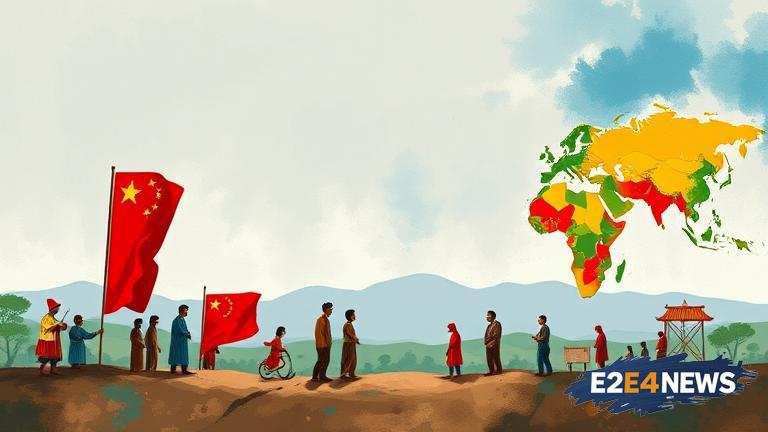China has once again reiterated its dedication to the principles of South-South cooperation, a development framework that seeks to foster collaboration and mutual support among countries in the Southern hemisphere. This commitment was recently underscored by Chinese officials, who emphasized the importance of solidarity and cooperation in addressing common challenges faced by developing nations. The South-South cooperation framework is built on the premise of mutual respect, equality, and non-interference in the internal affairs of participating countries. China’s engagement in this initiative is seen as a strategic move to enhance its diplomatic and economic ties with other developing countries, particularly in Africa, Asia, and Latin America. Through South-South cooperation, China aims to share its development experiences, provide technical assistance, and facilitate the exchange of knowledge and expertise with its partner countries. This cooperation is expected to yield significant benefits, including the promotion of economic growth, poverty reduction, and improved living standards. China’s commitment to South-South cooperation is also reflected in its Belt and Road Initiative (BRI), a massive infrastructure development project that seeks to connect China with other parts of Asia, Europe, and Africa. The BRI has been hailed as a game-changer in promoting regional connectivity, trade, and investment, and is expected to play a key role in advancing South-South cooperation. Chinese officials have emphasized that the country’s participation in South-South cooperation is guided by the principles of mutual benefit, win-win cooperation, and respect for the diversity of development paths. China has also pledged to increase its support for the United Nations’ 2030 Agenda for Sustainable Development, which aligns with the goals of South-South cooperation. The country has already made significant contributions to the implementation of the Sustainable Development Goals (SDGs), particularly in areas such as poverty reduction, education, and healthcare. China’s commitment to South-South cooperation has been welcomed by many developing countries, which see the initiative as an opportunity to accelerate their economic development and reduce their dependence on traditional donors. The cooperation framework has also been praised for its emphasis on solidarity and mutual support, which is seen as a key factor in promoting stability and security in the developing world. However, some critics have raised concerns about the potential risks and challenges associated with South-South cooperation, including the risk of debt distress and the potential for unequal partnerships. Despite these concerns, China remains committed to the principles of South-South cooperation and is working to address these challenges through dialogue and cooperation with its partner countries. The future of South-South cooperation looks promising, with many developing countries expressing their willingness to participate in the initiative and work together to achieve common development goals. China’s leadership in this area is expected to play a key role in shaping the future of South-South cooperation and promoting a more equitable and sustainable development model. The country’s commitment to the initiative is also seen as a reflection of its growing global influence and its desire to promote a more multipolar world order. As the world continues to grapple with the challenges of globalization, inequality, and climate change, the importance of South-South cooperation is likely to grow, and China’s leadership in this area is expected to be a major factor in shaping the future of international development. The success of South-South cooperation will depend on the ability of participating countries to work together, share knowledge and expertise, and address common challenges. China’s commitment to the initiative is a significant step in the right direction, and its leadership is expected to inspire other countries to follow suit. The cooperation framework has the potential to promote economic growth, reduce poverty, and improve living standards in developing countries, and its success will have far-reaching implications for the future of international development. In conclusion, China’s commitment to South-South cooperation is a significant development that is expected to have far-reaching implications for the future of international development. The initiative has the potential to promote economic growth, reduce poverty, and improve living standards in developing countries, and its success will depend on the ability of participating countries to work together and address common challenges.





